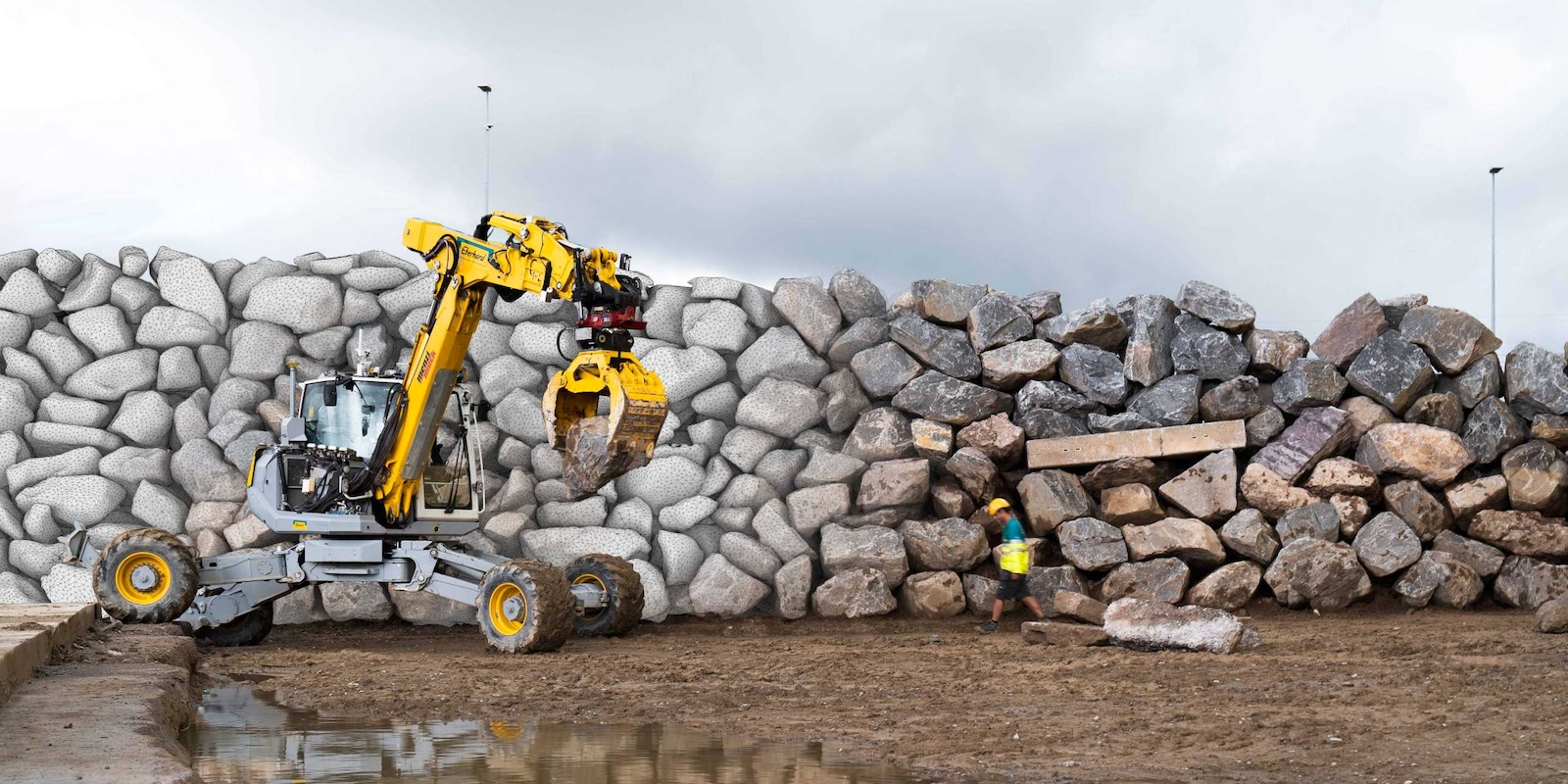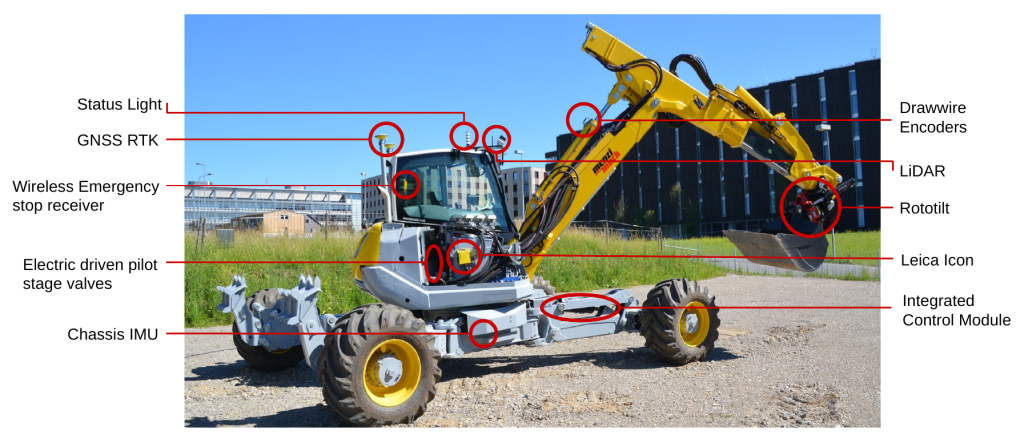
The robotics experts at ETH Zurich have developed an autonomous excavator that uses advanced AI to help it complete high-skill tasks without a human operator.
Dry stone wall construction typically involves huge amounts of operator labor. Doing it right requires not just hours of labor, but hours of skilled, experienced labor. At least, it used to. If the crew at ETH is successful, building stone retaining walls will soon become a “set it and forget it” task for robots to complete. Robots like their HEAP excavator.
HEAP (Hydraulic Excavator for an Autonomous Purpose) is a customized Menzi Muck M545 developed for autonomous operation that uses electrically-driven hydraulics to operate an advanced boom arm equipped with draw wire encoders, LiDAR, Leica iCON site-mapping, and a Rototilt “wrist” on the end that makes it look more like a high-precision robotic arm than a traditional heavy equipment asset.
ETH HEAP tech stack

Which makes sense. After all: the ETH guys are roboticists, not skilled heavy equipment operators. So, how does their robot do against skilled operators?
“We are currently outperformed by human excavator operators in placement speed,” ETH researchers wrote in Science Robotics. “Such operators, however, typically require string and paint references with which to register their construction and often a second or third person outside the machine to provide guidance and to insert small supporting stones, gravel, and soil by hand and shovel. In contrast, our process can build complex nonplanar global surface geometries without physical reference markers, does not require a skilled driver or small supporting stones, and provides a full digital twin of the built structure for better accountability and future reuse.”
Translation: the robot is slower, but it gets the job done.
You can watch the ETH HEAP put all its onboard tech to work building a 215 foot long, 20 foot high retaining wall all on its own in the video, below.
Autonomous excavator constructs dry stone wall
The completed project can be seen at Circularity Park in Oberglatt, Switzerland, and illustrates the potential for autonomous equipment to build with irregularly-shaped materials. And with skilled operators in short supply everywhere, the potential to free up operators so they can go where they’re really needed.
Electrek’s Take
ETH Zürich’s robot excavator has been in development for years, with numerous white papers exploring its potential uses in construction and agriculture published on the company’s site. It’s quite a rabbit hole, as internet deep-dives go, and I highly recommend it.
That said, the electrically driven hydraulics and high-precision Rototilt wrist on the end of the boom arm’s “claw” alone make this futuristic excavator worth some attention. As more and more manufacturers switch to full electric or even “just” electric drive, research into better solutions for existing hydraulic equipment and expertise could lead to big market wins.
FTC: We use income earning auto affiliate links. More.






Comments